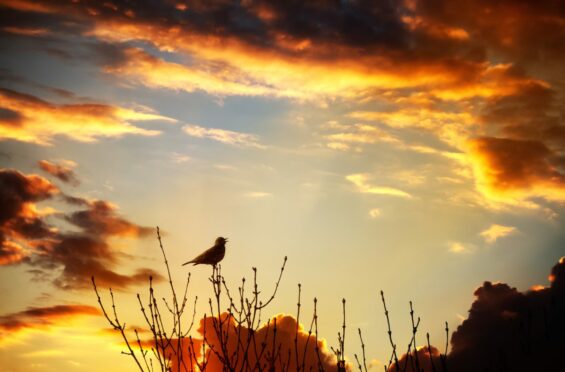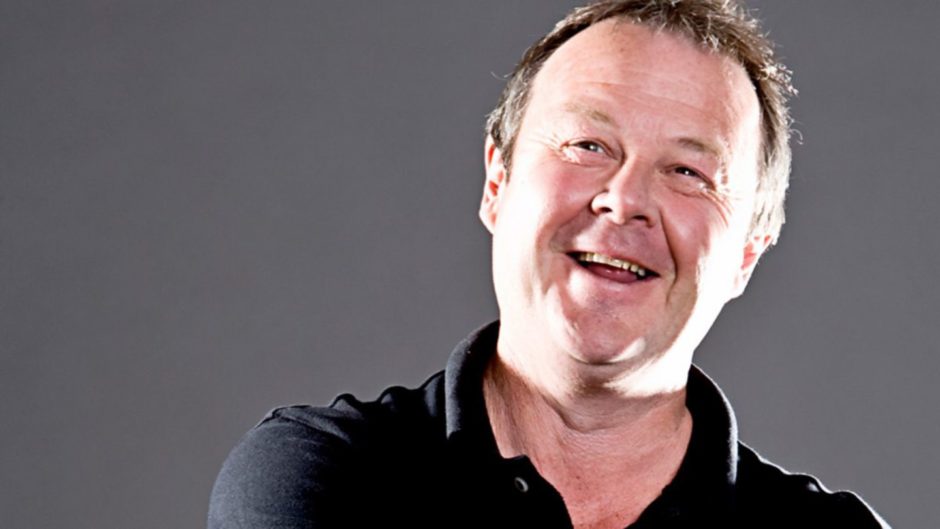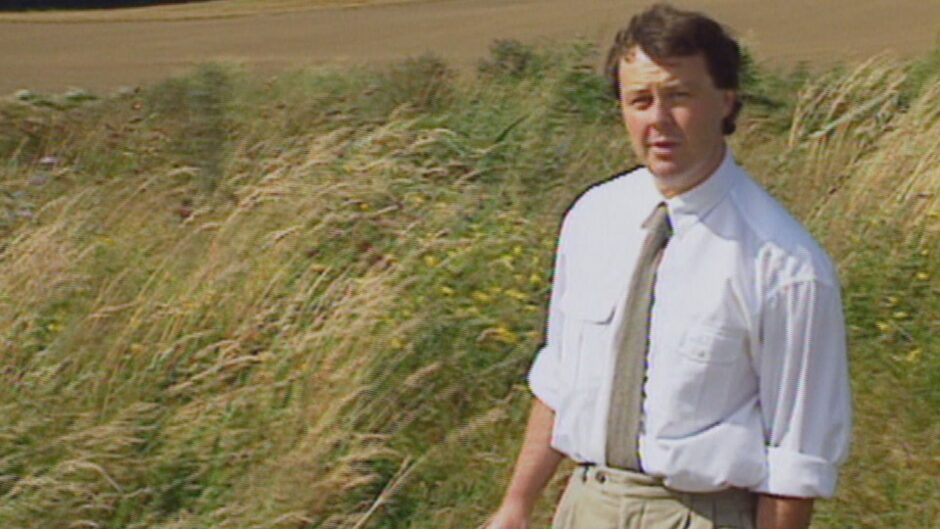
For the past 30 years Euan McIlwraith has brought Scotland’s wild places into our homes with his engaging and sometimes poetic reporting.
The presenter of Radio Scotland’s Out Of Doors hung up the wellies last week, after his final show doing what he considered a dream job.
It was his own darkest night during Scotland’s worst oil disaster which prompted the former rigger to switch careers. McIlwraith was a directional surveyor on another rig on the night Piper Alpha exploded, killing 167 men.
“A lot of my colleagues were simply saying, ‘To hell with this, it’s a career-changing moment. Go and chase your dream’,” he recalled.
“I had wanted to get into broadcasting but the truth was I was scared, too. In 1986 the British International Helicopters Chinook crash killed 45 people. I was on the same Chinook the day before. It turned back from Peterhead with mechanical problems, then it crashed the following day.
“It was just a dangerous industry and there were other things I wanted to do. I jacked it in the minute I got back ashore and went to do radio journalism with zero qualifications.”
After joining the BBC McIlwraith became a war correspondent. He eventually specialised in nature reporting and became a presenter for Landward and later Out Of Doors, adding the occasional poem to his broadcasting repertoire.
The literally wide-ranging Saturday morning show is the start of the weekend for many Scots as McIlwraith and co-presenter Mark Stephens explore Scotland, often travelling the roads less travelled to find the unexpected, little-known delights of the country’s wilderness.
Here, the popular presenter remembers a few highlights from 30 years out of doors.
Spelunking in Norway
We had a programme on land ownership and we needed some colour, so we went to do some caving in Norway. The guide said Mark was too big and in one of those moments where you find yourself volunteering to do something before thinking it through, I said I’d do it.
We abseiled down and down into a cave and there was a wee cleft in a corner. To get through you had to breathe out, and move forward an inch. Then breathe out, and inch forward again.
And I absolutely panicked and tried to stand up and ripped my clothes to shreds. I ended up cracking a rib. We were stuck in this cave so the guide had to leave and come back through the other entrance. I was in the dark for 90 minutes, alone.
When I got out I took the deepest, most delicious breath of fresh air. It was a stupid idea in the first place…
Climbing Mount Kilimanjaro
In an effort to see the impact of climate change, we went to the top of Kilimanjaro to see the glacier.
There’s the “Coca-Cola Route”, which is the beginner’s path but, for some stupid reason, we took this more difficult route, taking three or four days. It was incredibly hard going, the final part of the climb was essentially a cliff. It was wonderful seeing Africa below us.
I gave up at the final part and had to almost literally be dragged up by the guide but luckily managed to record the final ascent on a MiniDisc player. I took the MiniDisc player out and placed it on the ice, and a gust of wind blew it off the mountain.
I actually cried my eyes out for a while, then turned to the guide and said: “I’m really sorry, we have to do the final 500 metres again.”
The Edinburgh Festival
We were asked to do a live show at the Spiegel Tent at the Edinburgh Festival this summer – at 6am.
We kept asking them how ticket sales were going but they wouldn’t tell us. I thought at that time in the morning there would be nobody there.
I turned up at 5.30am and the queue was down the road. The tent had sold out at that time in the morning, which I couldn’t quite believe and still don’t.
It was touching to meet these folk who just love the programme. Some folk had left Aberdeen at 4am to come down.
You tend to deprecate yourself sometimes, don’t you? Then you see that and think that these people actually like what you’re doing. It made me wonder why I’m walking away from this!
The reintroduction of beavers
I remember speaking to the ecologist Roy Dennis, who wanted to bring beavers back to Scotland 30 years ago. I thought he hadn’t a hope in hell as there was a lot of opposition.
Last week we had this magical moment watching beaver, in the wild, in Scotland, just swimming about. Which was just so touching. Mark and I have worked together for decades and we shared this magical moment together.
Beavers shape the terrain, building dams and preventing flooding. They’re supposed to be here in the wild in Scotland but we killed them 400 years ago. Yet they were an important part of our ecosystem.
Seeing them successfully return makes you think there’s so much we can restore in our natural world.
The sound of global birdsong
There was a project during the pandemic to capture and broadcast live the dawn chorus of birds around the world as the sun was rising, from Australia to India, South Africa to Norway. It was incredibly ambitious.
The Norwegian chap was reporting on his leg of the broadcast, telling us about the birds while he had a rifle to hand, in case a polar bear appeared.
I was listening to the birds: kookaburras, birds of paradise, peacocks, and wondered how Scotland would sound compare to these wonderful animals.
Then it came to me, in my garden, at 4am. A blackbird appeared and just gave it absolute laldy. Our birds can compete with anything.
It was wonderful to think of us as a small cog in this wider world.

Enjoy the convenience of having The Sunday Post delivered as a digital ePaper straight to your smartphone, tablet or computer.
Subscribe for only £5.49 a month and enjoy all the benefits of the printed paper as a digital replica.
Subscribe © BBC
© BBC © Supplied by BBC
© Supplied by BBC